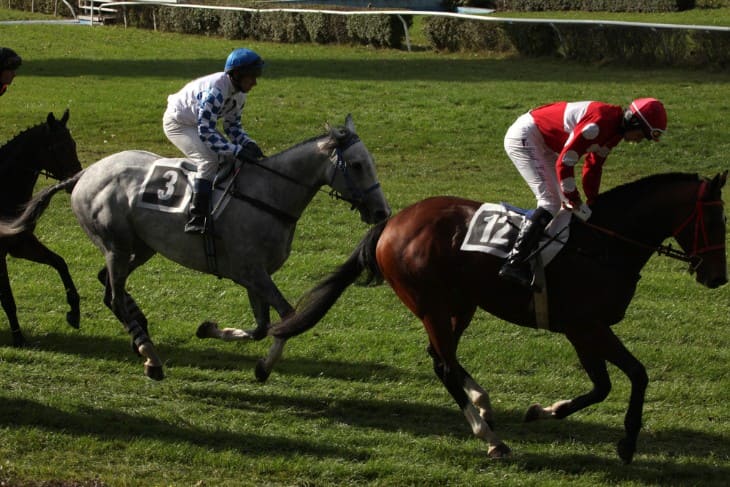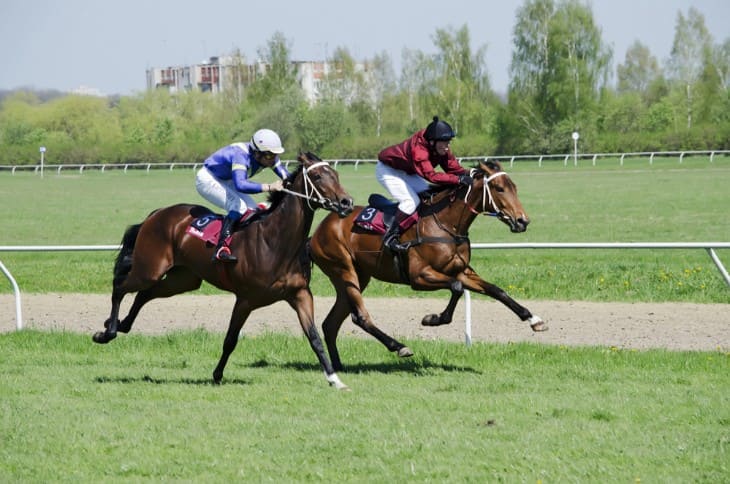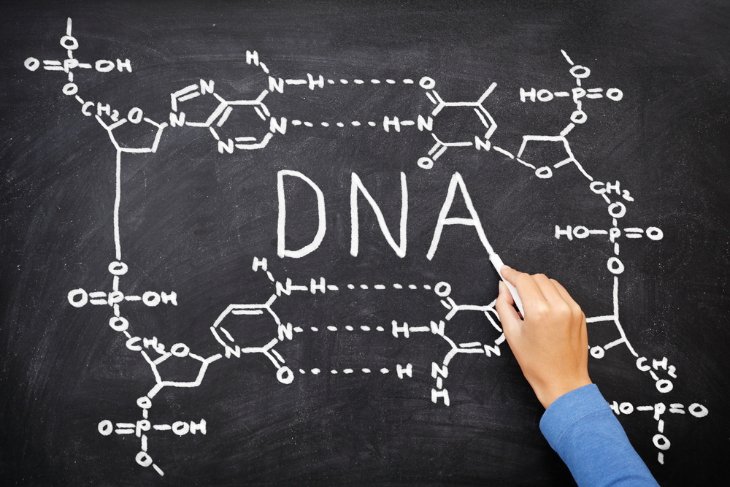- Equine Genetics
- Historical Perspective on Breeding in Horse Racing
- Genetic Factors Affecting Speed and Stamina
- Understanding Inheritance Patterns in Thoroughbreds
- Role of Genetic Testing in Selecting Racing Prospects
- Breeding Strategies for Performance Enhancement
- Mitigating Genetic Disorders in Racehorses
- The Impact of Genetic Diversity on the Racing Population
- Nature vs. Nurture: Genetics and Training in Horse Racing
- Conclusion: Harnessing Genetic Insights for Future Racing Success
Horse racing isn't just about swift horses and keen fans. It's also about understanding horse DNA and how it influences their pace and endurance. This article explains the science behind horse genetics and its significant role in racing success.
Equine Genetics
At the heart of every racehorse's abilities lies its genetic makeup. Just like in human beings, genetics play a significant role in determining a horse's physical attributes, temperament, and potential for success. But what exactly are these genes, and how do they exert their influence?
Genes are the tiny units of heredity that carry instructions for building and maintaining an organism. In the context of horse racing, genes determine crucial aspects such as speed, endurance, and skeletal structure. While training, nutrition, and environment all matter, the genetic blueprint a horse is born with sets the foundation for its performance.
Historical Perspective on Breeding in Horse Racing
The practice of selective breeding in horse racing dates back centuries. From the earliest days, breeders sought to pair horses with desirable traits to produce offspring that could excel on the track. This selective breeding aimed to combine the speed of one horse with the stamina of another, creating a balanced athlete capable of tackling various racing distances.
In historical contexts, lineage and pedigree have been held in high regard. Famous racehorses like Eclipse and Secretariat gained legendary status not just for their victories, but also for the potential of passing on their exceptional genes to future generations. Thus, the foundations of modern horse racing were laid by breeders who understood, albeit with limited scientific knowledge, the importance of hereditary factors in shaping a horse's racing prowess.
You can read more about the Legendary Horses in Racing History here.
Genetic Factors Affecting Speed and Stamina
When it comes to horse racing, the factors of speed and stamina are like the two sides of a coin. The genetic components underpinning these traits are intricate and fascinating. Speed, for instance, hinges on a combination of muscle fibers, lung capacity, and cardiovascular efficiency.
Muscle fibers can be broadly categorized into two types: slow-twitch and fast-twitch. Slow-twitch fibers provide endurance, allowing a horse to maintain a steady pace over long distances. On the other hand, fast-twitch fibers are responsible for bursts of speed and power, ideal for short sprints. A horse's genetic predisposition towards either of these fiber types can greatly influence its racing style and suitability for specific distances.
Stamina, equally crucial, relies on a horse's cardiovascular system. A horse with a genetically robust heart and lungs can efficiently oxygenate its muscles, sustaining a gallop over extended distances. Such attributes are often traced back through pedigrees, with breeders aiming to consolidate traits that enhance endurance and pacing.

Understanding Inheritance Patterns in Thoroughbreds
Thoroughbreds, the elite athletes of the horse racing world, are the result of generations of selective breeding. Their genetic makeup is meticulously managed, yet it's not always straightforward. Understanding the intricate patterns of inheritance is like deciphering a genetic puzzle.
Dominant and recessive genes, as well as polygenic traits, all contribute to the diversity of traits observed in thoroughbreds. Take coat color, for example. The chestnut coat is controlled by a single dominant gene, while the bay coat results from the interaction of multiple genes. Breeding two chestnut horses might seem to guarantee a chestnut foal, but the presence of hidden recessive genes can lead to unexpected outcomes.
Moreover, genetic diversity isn't just about single traits. The interaction between various genes can result in an outcome that's more than the sum of its parts. This complexity challenges breeders to make informed decisions, considering not only individual genes but also their interactions.
Role of Genetic Testing in Selecting Racing Prospects
Advancements in technology have paved the way for genetic testing to become a pivotal tool in the realm of horse racing. By analysing a horse's DNA, breeders and trainers can gain insights into its potential strengths and limitations. This kind of knowledge can guide decisions on training, racing distances, and even whether to send a horse to the breeding shed.
Genetic tests can provide information about a horse's predisposition to certain traits like speed, stamina, and even susceptibility to specific health issues. Imagine having a glimpse into a horse's genetic code to anticipate its performance characteristics. This information isn't a crystal ball, but it can help breeders make more informed choices about which matings are likely to yield the desired attributes in their foals.
However, while genetic testing holds promise, it's important to remember that it's just one piece of the puzzle. A horse's environment, training, and management still play a significant role in determining its success on the track. Genetics offers a blueprint, but it's up to trainers and jockeys to turn that potential into victory.
Breeding Strategies for Performance Enhancement
The art of breeding racehorses is a delicate dance of science, history, and intuition. Breeding decisions are made with a blend of scientific knowledge about genetics, an understanding of the sport's demands, and a dash of hope for the perfect outcome.
Inbreeding and linebreeding are strategies that aim to concentrate the genes of exceptional ancestors within a horse's pedigree. These approaches can solidify desirable traits, but they also come with risks. Over time, they can also bring forward undesirable recessive traits, increasing the likelihood of genetic disorders.
On the flip side, outcrossing involves pairing horses with little or no common ancestry. This strategy introduces genetic diversity and reduces the risk of inherited disorders, but it also means the outcome is less predictable. Striking a balance between these breeding strategies is a tightrope act, seeking to amplify strengths while minimising weaknesses.
Mitigating Genetic Disorders in Racehorses
In the pursuit of equine excellence, the spectre of genetic disorders looms. Just as humans can inherit genetic conditions, horses are also susceptible to various hereditary health issues. Breeders and veterinarians are acutely aware of the need to mitigate these risks and ensure the welfare of the animals they work with.
Hereditary conditions can range from musculoskeletal disorders like osteochondritis dissecans to metabolic issues such as polysaccharide storage myopathy. These conditions not only jeopardise a horse's performance but also impact its quality of life. Selective breeding can inadvertently amplify these problems, creating a challenging ethical dilemma for breeders.
Modern genetics offers a glimmer of hope in this arena. Genetic testing can identify carriers of certain disorders, allowing breeders to make informed decisions about mating pairs and minimise the risk of passing on these issues. With knowledge comes the power to make better choices, steering the trajectory of breeding programmes towards healthier outcomes.
The Impact of Genetic Diversity on the Racing Population
A diverse gene pool is the bedrock of a healthy population. In the world of horse racing, genetic diversity has far-reaching implications. Limited gene pools increase the risk of inbreeding, potentially exacerbating genetic disorders and limiting the overall robustness of the population.
Historically, a handful of influential stallions have shaped the genetic landscape of thoroughbred racing. While their contributions have been undeniably valuable, overreliance on a small number of individuals has led to concerns about the narrowing of genetic diversity. The industry now recognises the need to broaden the gene pool, incorporating horses from different lines and regions to ensure a resilient racing population.
Genetic diversity doesn't just guard against health issues. It can also introduce new traits, enhancing the adaptability and versatility of racehorses. As we examine the complex interplay between genes and racing performance, we'll delve into how a diverse genetic tapestry can impact the long-term sustainability and success of the sport.
Nature vs. Nurture: Genetics and Training in Horse Racing
In the realm of horse racing, the age-old debate of nature versus nurture takes centre stage. While genetics lay the foundation, training, environment, and care mould the raw potential into a race-ready athlete. Imagine a prodigious horse with exceptional genetic makeup—does that automatically translate into victory on the track?
Genetics can bestow a horse with innate abilities, but it's the careful nurturing and skillful training that hones those abilities into peak performance. A horse may be predisposed to speed, but without proper conditioning and guidance, that potential remains untapped. This duality presents a fascinating blend of science and artistry, where trainers play the role of sculptors, chiselling a block of genetic marble into a masterpiece of speed and grace.
Furthermore, the symbiotic relationship between genetics and training extends to the understanding of each horse as an individual. What works for one might not work for another due to their unique genetic predispositions. This individuality demands a tailored approach, where trainers consider not only the breed's general traits but also the specific genetic makeup of each horse.

Conclusion: Harnessing Genetic Insights for Future Racing Success
As we wrap up our look into genetics in horse racing, we've learned about the mix of science, history, and dedication involved. Genetics sets the stage, but it's the combined effort of breeders, trainers, and natural factors that shape top racing horses.
By understanding genetic patterns and using genetic testing, breeders now have a significant advantage in producing top racehorses. This knowledge helps breeders choose wisely, allows trainers to design effective training regimes, and lets horses perform at their best in competitions.
However, even with all this genetic insight, the core of horse racing remains the same: the excitement of the race, the powerful run of the horses, and their unyielding spirit. Genetics might influence the direction of the sport, but it's the passion of everyone involved that keeps the racing world vibrant.
So, as you watch the races and hear the excitement, know that each race is more than just speed. It's also about the result of years of genetic development, carefully honed for that brief moment of victory. And as racing progresses, genetics will keep playing a key role, linking the sport's history, present, and future in a tale that continues over time.
For more information: Top 10 Horse Racing Breeds








